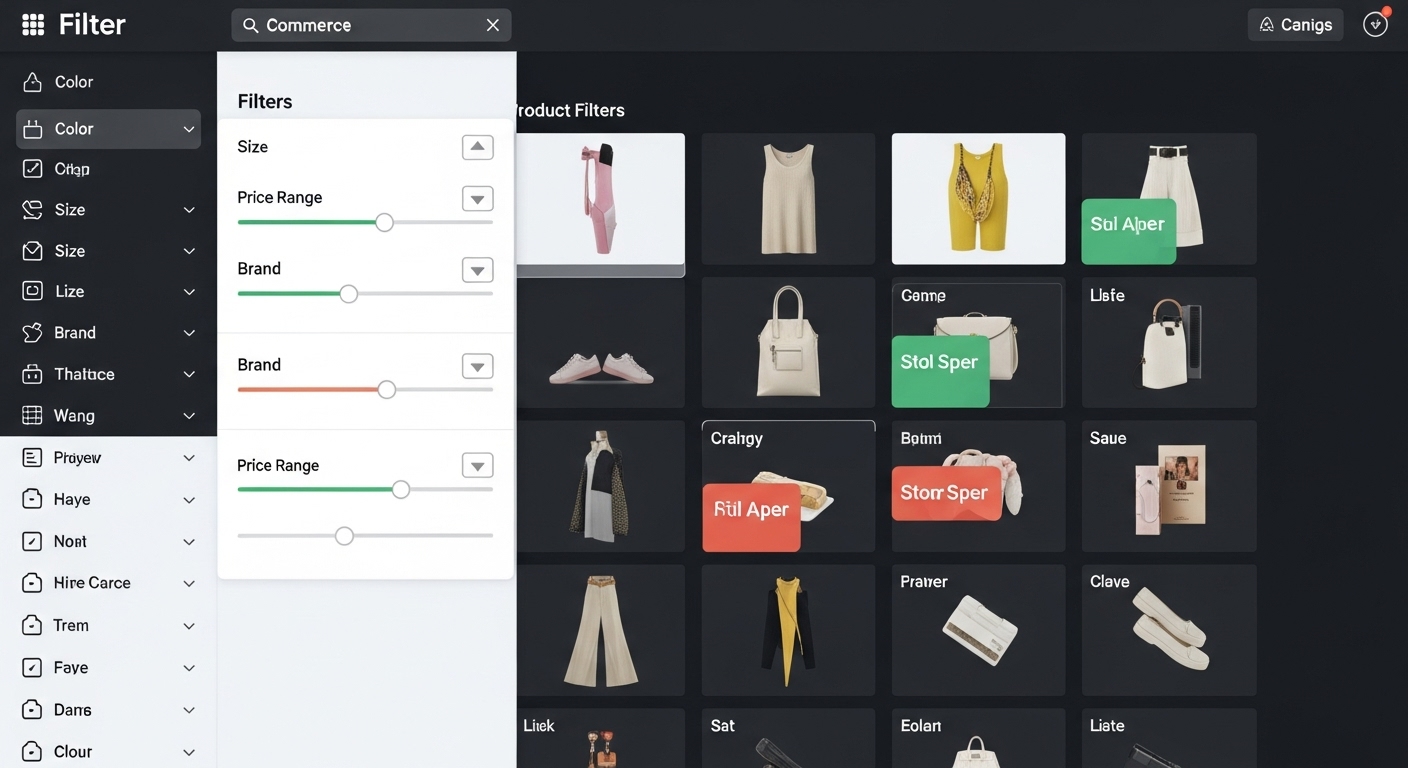Essential Free WooCommerce Plugins for Physical Products
Introduction: Architecting a High-Performance Ecommerce Engine on a Budget
WooCommerce stands as the world’s most popular ecommerce platform, a testament to its power, flexibility, and the appeal of its free, open-source core. However, this core platform is intentionally lean. To successfully sell physical products at any meaningful scale, a store owner must strategically augment this foundation with a carefully selected suite of plugins. This report identifies the essential, “must-have” free plugins that fill the most critical operational gaps for merchants of physical goods, transforming a basic WordPress installation into a competitive and efficient online retail operation.
The selections herein are not mere suggestions but are framed as indispensable components for achieving operational efficiency, a superior customer experience, and scalable growth. The focus is on plugins that address the unique challenges of physical products—from the complexities of shipping and inventory to the nuances of product personalization and building trust with tangible goods.
It is crucial to understand the dominant “freemium” model within the WordPress ecosystem. In this context, “free” typically signifies a highly functional starting point, with certain limitations or advanced features reserved for paid upgrades. This report meticulously analyzes the value and constraints of these free tiers, identifying where they provide a robust long-term solution and where they serve as a launchpad for an eventual, necessary investment. Furthermore, it will address “cost-of-doing-business” plugins, such as payment gateways, which are free to install but have inherent transaction fees—an unavoidable aspect of ecommerce. By understanding this landscape, merchants can build a powerful ecommerce engine on a minimal budget, with a clear roadmap for future growth.

Section 1: Core Operations and Logistics: The Engine Room of Your Store
The foundational plugins in this section manage the physical movement of goods and the administrative backbone of the store. Without robust solutions for shipping, invoicing, and inventory, a physical product business cannot function efficiently or scale effectively.
Mastering Shipping and Fulfillment: From Calculation to Customer Notification
A default WooCommerce installation offers only rudimentary shipping options, such as flat rates, which are inadequate for the complexities of physical goods. Products have variable weights, dimensions, and destinations, demanding a dynamic, rules-based approach to shipping calculation to avoid either absorbing significant losses or overcharging customers and losing sales.
Featured Plugin 1: Flexible Shipping for WooCommerce
This plugin is the cornerstone of a sophisticated free shipping strategy. It transforms WooCommerce’s capabilities by providing a powerful rules engine that allows store owners to create layered shipping conditions. Rates can be precisely calculated based on factors like total cart weight, order value, item count, and specific shipping zones or destinations. This functionality is critical for merchants with diverse catalogs, such as a furniture store that also sells small home decor items, enabling them to set rules like “Free shipping on orders over $100, but a $50 surcharge for any item weighing over 50 lbs.”
Featured Plugin 2: Advanced Shipment Tracking for WooCommerce (AST)
Post-purchase anxiety, driven by the question “Where is my order?”, is a primary source of customer support tickets. The AST plugin directly mitigates this by enhancing the post-purchase experience. It embeds tracking numbers, carrier details, and live shipment statuses directly into the customer’s order page within their account. With support for over 300 shipping providers globally, it is a universally effective free solution for increasing transparency, building customer trust, and significantly reducing the burden on support staff.
While this combination of plugins provides a robust, free solution for rate calculation and customer-facing tracking, it exposes a critical operational gap in the “free logistics stack”: shipping label printing. The research indicates that plugins offering integrated, one-click shipping label generation are almost exclusively premium, subscription-based services. Even WooCommerce’s own free label printing solution is limited to specific regions and carriers. As a store’s order volume grows, the manual process of copying and pasting customer addresses from WooCommerce into carrier websites to print labels becomes the primary operational bottleneck. Therefore, while this free stack is an excellent starting point, store owners must anticipate that a paid shipping automation and label-printing plugin will be one of the first and most critical investments required to support growth.
Automating Professional Invoicing and Packing Slips
Professionalism and efficiency in order fulfillment depend on standardized, accurate documentation. Manually creating invoices and packing slips is not only time-consuming but also highly susceptible to human error.
Featured Plugin: WooCommerce PDF Invoices & Packing Slips
This plugin is widely recognized as the industry-standard free solution for automating order documentation. Its primary function is to automatically generate a professional PDF invoice and attach it to the order confirmation email sent to the customer. This ensures every customer receives a proper record of their purchase without any manual intervention. Critically for physical product fulfillment, it also allows for the bulk generation and printing of packing slips. These slips are essential for warehouse staff to accurately pick and pack orders, minimizing shipping errors and ensuring the correct items reach the customer. The plugin’s templates can be customized with basic HTML and CSS, allowing merchants to maintain brand consistency across all customer-facing documents.
Intelligent Inventory and Stock Management
For stores with more than a handful of products—particularly those with over 50 SKUs or fast-moving inventory—managing stock levels within the native WooCommerce interface can become a tedious and inefficient task.
Featured Plugin 1: Stock Manager for WooCommerce
This plugin provides a vital efficiency boost by presenting inventory data in a spreadsheet-like interface. Store managers can view and edit stock levels, stock statuses, prices, and weights for all products and their variations on a single screen. This dramatically accelerates the process of stock updates, price adjustments, or sales preparations compared to the cumbersome method of editing products one by one. It is a must-have for any store with a moderately complex product catalog.
Featured Plugin 2: Product Import Export for WooCommerce by WebToffee
This tool is indispensable for any bulk data operations. It is particularly crucial during the initial setup of a store, when migrating from another ecommerce platform, or when receiving updated product and stock information from a supplier in a CSV file. The ability to bulk import new products or bulk export existing ones for modification in a spreadsheet saves countless hours of manual data entry and reduces the risk of errors.
Section 2: The Digital Showroom: Enhancing Product Discovery and Engagement
This section shifts focus from back-end operations to the front-end customer experience. The following plugins are essential for improving how products are presented, personalized, and discovered, directly impacting conversion rates and customer satisfaction.
Enabling Product Personalization and Custom Options
Many physical products, from engraved jewelry to custom-printed apparel, offer personalization options that WooCommerce’s default variations system cannot adequately handle. This represents a significant revenue opportunity that requires a dedicated plugin to capture effectively. An entire ecosystem of “Product Add-ons” plugins exists to solve this problem, allowing merchants to add extra input fields like text boxes, dropdown menus, checkboxes, and file uploads to their product pages.
The key differentiators among the free versions of these plugins are the number and type of fields offered and the inclusion of advanced features like conditional logic (i.e., showing or hiding certain options based on a customer’s previous selections). The choice of plugin should be directly informed by the specific customization needs of the store.
Table 1: Comparative Analysis of Free Product Add-On Plugins
| Plugin Name | Key Free Features | Free Field Types Available | Conditional Logic (Free Tier) | Best For… |
|---|---|---|---|---|
| WowAddons | Conditional logic, file uploads, 23+ field types | Text, swatches, date/time, file upload, dropdowns, checkboxes, etc. | Yes | Stores needing maximum flexibility and premium-level features like file uploads without an upfront cost. |
| Advanced Product Fields (StudioWombat) | Polished interface, well-documented, multiple field types | Text, select, checkboxes, radio buttons, etc. | No | Businesses that prioritize a clean user interface and excellent documentation for a straightforward setup. |
| Product Addons (Acowebs) | Drag-and-drop builder, tooltip support, multi-language compatible | Text, select, date/time, color picker, radio, checkbox, etc. (10+ types) | No | Stores needing a user-friendly form builder and support for multiple languages. |
| Extra Product Options (ThemeHigh) | 18+ input fields, reusable field groups, price per field (flat or percentage) | Text, select, checkboxes, radio, date, time, color picker, etc. |
Yes Merchants who require granular control over field layouts, display rules, and dynamic pricing without coding.
PPOM (ThemeIsle)
- 19+ field types, file upload support, basic conditional logic
- Text, color picker, date, file upload, radio, checkbox, etc.
- Basic
- Gift shops or custom print businesses that require file uploads and a wide variety of field options.

Advanced Product Filtering and Search
As a product catalog expands, customers can quickly become overwhelmed, leading to frustration and site abandonment. The ability to quickly and intuitively filter products by key attributes like size, color, brand, or price is a fundamental expectation for modern online shoppers and is essential for driving conversions.
Featured Plugin 1: YITH WooCommerce Ajax Product Filter
This plugin provides a seamless and modern shopping experience by allowing customers to filter products without the page needing to reload (a technology known as AJAX). The free version is remarkably powerful, offering robust filtering by product category, attributes (e.g., color, size), tags, and price. This covers the core needs of most online stores. Its immense popularity and strong compatibility with other plugins make it a reliable and effective choice for improving product discovery.
Featured Plugin 2: FiboSearch (formerly Ajax Search for WooCommerce)
This plugin offers a significant upgrade to the default WordPress search bar. FiboSearch provides real-time, “live” search suggestions as a user types their query. These results are enriched with product images, current prices, and even an “add to cart” button directly within the search dropdown. This functionality dramatically reduces the friction involved in finding a specific product, shortening the path from search to purchase.
Building Social Proof and Trust: The Power of Customer Reviews
Online shoppers depend heavily on the experiences of previous buyers to make purchasing decisions. While WooCommerce includes a basic review system, it lacks the features needed to proactively generate and leverage social proof effectively.
Featured Plugin: Customer Reviews for WooCommerce (CusRev)
CusRev is a comprehensive review solution with an exceptionally feature-rich free tier. Its most critical feature is the automated post-purchase email reminder, which is proven to be the most effective way to generate a consistent stream of new reviews. The plugin enhances standard reviews by allowing customers to attach images—an invaluable feature for physical products, as it shows potential buyers the item in a real-world context. It also allows merchants to offer discount coupons as an incentive for leaving a review and integrates with Google Shopping to display star ratings directly in search results, which can significantly improve click-through rates.
This plugin’s value extends beyond simple social proof. The reviews it generates create a continuous stream of unique, user-generated content (UGC). This content is often rich with long-tail keywords and phrases that real customers use to describe the products, which search engines like Google highly value. The plugin also ensures this content is formatted with the correct structured data (Schema markup), making the site eligible for rich snippets in search results. This creates a powerful synergy: the review plugin enhances on-page conversion while simultaneously generating free, high-value content that boosts the effectiveness of the store’s overall SEO strategy.
Section 3: Optimizing the Path to Purchase: From Cart to Conversion
The final stages of the customer journey—from adding an item to the cart to completing the payment—are the most critical. Small points of friction in this phase can lead to disproportionately large losses in revenue. The plugins in this section are designed to smooth this path and recover potentially lost sales.
Streamlining the Checkout Experience
The default WooCommerce checkout page is frequently identified as a major point of friction in the buying process. It can be perceived as long, clunky, and is not always optimized for a seamless mobile experience, which is a primary cause of cart abandonment.
Featured Plugin 1: Checkout Field Editor (ThemeHigh)
This plugin provides store owners with essential control over the checkout form. The free version allows merchants to add, edit, rearrange, or remove fields in the billing, shipping, and additional information sections. This is immensely practical for optimizing the checkout flow. For instance, a merchant can remove non-essential fields like “Company name” or “Apartment, suite, etc.” to shorten the form and reduce user effort. Conversely, they can add crucial custom fields, such as a “Delivery Instructions” text box for couriers or a required VAT number field for B2B transactions.
Featured Plugin 2: Direct Checkout for WooCommerce
For stores where customers often purchase a single item at a time (e.g., a specialty gift shop), this plugin can significantly reduce friction. It provides the option to skip the cart page entirely, taking the customer directly from the product page to the checkout page. The plugin can be configured to replace the standard “Add to Cart” button with a “Buy Now” button, or to add the “Buy Now” button alongside it, streamlining the path to purchase for decisive buyers.
Recovering Lost Sales: The Abandoned Cart Safety Net
Industry data consistently shows that a large percentage of users who add items to their cart will leave the site without completing the purchase. Recovering even a small fraction of these abandoned carts translates directly into increased revenue.
Featured Plugin: CartBounty
While many abandoned cart recovery plugins reserve their automation features for premium tiers, CartBounty is notable for including this powerful functionality in its free version. The plugin actively tracks carts that are abandoned by shoppers and can be configured to send a sequence of automated email reminders. These emails can include a link back to the cart, encouraging users to return and complete their purchase. Implementing an automated abandoned cart strategy is one of the highest return-on-investment (ROI) activities an ecommerce store can undertake, and having a free, automated solution provides a massive advantage for new and growing businesses.
Encouraging Future Purchases with Wishlists
Not every visitor who is interested in a product is ready to make a purchase immediately. A wishlist serves as a crucial tool for these users, offering a low-commitment way to save items for future consideration. This keeps potential customers engaged with the brand and provides the store owner with invaluable data on which products are generating the most interest.
Featured Plugin: YITH WooCommerce Wishlist
With over 900,000 active installations, YITH WooCommerce Wishlist is the de facto standard and most popular choice for this functionality. The free version provides all the core customer-facing features needed. It allows logged-in users to add products to a personal wishlist, view their saved items on a dedicated page, and share their lists with friends and family—a powerful form of social marketing, especially around holidays and birthdays. While the premium version offers advanced analytics for the store owner, the free version delivers the essential functionality that enhances user retention and encourages return visits.
Section 4: The Growth Engine: Free Plugins for Marketing and Analytics
To achieve sustainable growth, a store must be able to attract new customers, engage its existing audience, and understand the data behind its performance. The plugins in this section provide the foundational tools for a comprehensive marketing and analytics strategy.
Dominating Search: Essential SEO for WooCommerce
Attracting free, high-intent organic traffic from search engines like Google is a cornerstone of long-term ecommerce success. To achieve this, a store’s product pages, category pages, and blog content must be properly optimized. This involves managing SEO titles, meta descriptions, XML sitemaps, and structured data (Schema markup).
The two dominant plugins in this space are Rank Math and Yoast SEO, both of which offer excellent free versions that cover all the fundamental requirements. Rank Math is frequently cited as offering a more extensive feature set in its free tier, including the ability to optimize for multiple keywords per page and providing more comprehensive Schema support, which is crucial for helping products stand out in search results.
Table 2: SEO Plugin Showdown: Rank Math vs. Yoast SEO (Free Versions)
| Feature | Rank Math (Free) | Yoast SEO (Free) |
|---|---|---|
| Focus Keyword Optimization | Up to 5 keywords per page (expandable) | 1 keyword per page |
| Content & SEO Analysis | Comprehensive analysis with a 0-100 score | Comprehensive analysis with a traffic light system |
| XML Sitemaps | Yes, highly customizable | Yes, standard functionality |
| Schema Markup Support | Extensive (16+ types), including Product, FAQ, HowTo | Basic support (e.g., Product, Article) |
| Google Search Console Integration | Yes, built-in dashboard | Yes, for site verification only |
| Redirection Manager | Yes, built-in | Premium feature |
| 404 Monitor | Yes, built-in | Premium feature |
| WooCommerce SEO Basics | Yes, with rich product schema | Yes, with basic product schema |
A dedicated plugin is necessary to build an email list, send newsletters, and automate marketing campaigns.
Featured Plugin: MailPoet
MailPoet is a powerful, all-in-one email marketing solution that operates entirely from within the WordPress dashboard, eliminating the need for a separate, often costly, third-party service for stores that are just starting out. Its free tier is particularly generous, allowing for up to 1,000 subscribers and 5,000 emails per month. Most importantly for an ecommerce store, MailPoet features tight integration with WooCommerce. This enables sophisticated automated email sequences, such as abandoned cart recovery emails and post-purchase follow-ups, which are critical for maximizing customer lifetime value.
Measuring for Success: Analytics and Reporting
Making informed business decisions is impossible without accurate data. Store owners must understand where their traffic is coming from, how visitors behave on their site, and which channels are driving sales.
Featured Plugin: MonsterInsights
While WooCommerce provides its own set of sales reports, integrating with Google Analytics is the industry standard for comprehensive web traffic and behavior analysis. MonsterInsights is the most popular plugin for this purpose, as it dramatically simplifies the process of connecting a WordPress site to Google Analytics, requiring just a few clicks instead of manual code editing. The free version provides an accessible dashboard within WordPress that displays key metrics such as sessions, page views, bounce rates, and top traffic sources. Although full ecommerce tracking (e.g., conversion rates, average order value) is a premium feature, the free version is a non-negotiable tool for establishing foundational traffic analysis and understanding customer acquisition channels.
Section 5: Fortifying the Foundation: Essential Site-Wide Utilities
This final section covers the non-negotiable backend plugins that ensure the store is secure, performant, and capable of processing payments. These utilities form the bedrock upon which the entire ecommerce operation is built.
Payment Gateway Integration: The “Free to Install” Model
A store cannot operate without the ability to accept payments. However, it is critical to understand the terminology in this category. No payment gateway that processes major credit cards is truly “free” in the sense of having no costs. These services operate on a “pay-as-you-go” model. The WordPress plugin itself is free to download and install, but the payment provider charges a transaction fee—typically a percentage of the sale plus a small fixed fee—on every purchase. This is a standard and unavoidable cost of doing business online.
Featured Plugin 1: WooPayments
As the official payment solution from the creators of WooCommerce, WooPayments offers the deepest and most seamless integration. Its primary advantage is the unified dashboard. Merchants can manage payments, issue refunds, and handle disputes directly within the WordPress admin area, which provides a significant workflow advantage over having to log into a separate payment processor’s portal.
Featured Plugin 2: PayPal Payments & Stripe
These are the two most globally recognized and trusted third-party payment processors. Offering both as payment options can increase conversion rates, as customers are often more comfortable using a familiar and trusted method. The official plugins for both Stripe and PayPal are free to install and provide a secure, on-site checkout experience that keeps the customer on the store’s domain throughout the payment process.
Performance and Speed Optimization: Caching and Image Compression
Site speed is a critical factor for both user experience and SEO. A 1-second delay in page load time can result in a 7% reduction in conversions, and Google uses page speed as a ranking factor. WooCommerce stores, with their dynamic cart functionality and large, high-resolution product images, are especially prone to slow performance if not properly optimized.
Featured Plugin (Caching): WP Fastest Cache
Caching is the process of creating static HTML versions of dynamic pages, which dramatically reduces server processing time and delivers content to visitors much more quickly. WP Fastest Cache is consistently recommended for its powerful features and user-friendly setup. The free version includes the most essential performance-boosting features: page caching, minification of HTML and CSS (removing unnecessary characters from code), and Gzip compression (reducing file sizes for faster transfer).
Featured Plugin (Image Optimization): Smush Image Optimization
High-quality product photography is essential for selling physical goods, but large image files are the single biggest contributor to slow page load times. An image optimization plugin is therefore non-negotiable. Smush is one of the most popular and effective solutions, with a robust free tier. It provides lossless compression (reducing file size without sacrificing visual quality), lazy loading (which defers the loading of images until they are about to enter the user’s screen), and the ability to bulk-optimize all existing images in the media library.
These performance optimization efforts create a virtuous cycle that positively impacts every other aspect of the store. A faster site leads to lower bounce rates, meaning more visitors stay to interact with products and be influenced by customer reviews. Because page speed is an SEO ranking factor, these plugins directly amplify the effectiveness of an SEO tool like Rank Math. Finally, a faster, more responsive checkout process leads to lower cart abandonment, directly improving the store’s bottom line.
Hardening Your Defenses: Security
The open-source nature and popularity of WordPress make it a constant target for malicious attacks. An ecommerce store, which handles sensitive customer data and processes financial transactions, must maintain a robust security posture.
Featured Plugin: Wordfence Security
Wordfence is the global leader in WordPress security, with over 5 million active installations protecting websites worldwide. The free version of the plugin provides an essential security toolkit that no store should be without. This includes a Web Application Firewall (WAF) that proactively blocks malicious traffic before it can reach the site, and a malware scanner that detects and helps clean up infections. While the free version has a 30-day delay on receiving the very latest firewall rules and malware signatures, it provides a critical baseline of protection that effectively defends against a wide array of common threats.
Conclusion: Your Essential Free Plugin Stack and Strategic Roadmap
By leveraging a curated selection of free plugins, it is entirely possible to build a professional, secure, and highly functional WooCommerce store that can compete effectively without a significant upfront investment. This report has detailed the essential tools needed to manage logistics, enhance the customer experience, optimize conversions, and market the business.
The Core Free Plugin Stack:
- Logistics: Flexible Shipping, Advanced Shipment Tracking, WooCommerce PDF Invoices & Packing Slips
- Customer Experience: Extra Product Options (ThemeHigh), YITH WooCommerce Ajax Product Filter, Customer Reviews for WooCommerce
- Conversion Optimization: Checkout Field Editor, CartBounty, YITH WooCommerce Wishlist
- Marketing & Analytics: Rank Math, MailPoet, MonsterInsights
- Foundation & Security: WooPayments, WP Fastest Cache, Smush, Wordfence
Strategic Phasing and The Path to Premium:
- Phase 1 (Launch): The immediate priority is to install the entire foundational stack. This ensures the store is performant, secure, and operationally sound from day one.
- Phase 2 (Growth | 50+ orders/month): At this volume, the inefficiency of manually printing shipping labels will become a significant operational drag. The first and most impactful premium upgrade should be a shipping automation plugin that offers integrated label printing.
- Phase 3 (Scaling | 200+ orders/month): As the customer base grows, the limitations of the free marketing and analytics tools will become more apparent. Exceeding MailPoet’s 1,000-subscriber limit or requiring the detailed conversion data from MonsterInsights Pro will signal the need to invest in premium marketing automation and advanced analytics to enable more sophisticated, data-driven growth strategies.
By following this strategic roadmap, merchants can launch with confidence, knowing their store is built on a solid, cost-effective foundation, while also having a clear and logical plan for investing in the tools that will support their long-term success.
📚 For more insights, check out our web development best practices.


